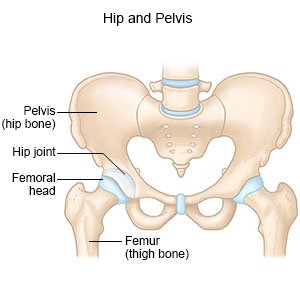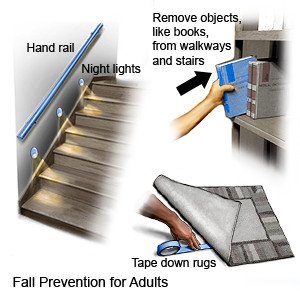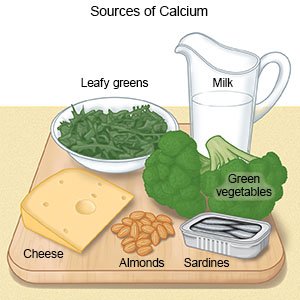Hip Fracture
Medically reviewed by Drugs.com. Last updated on Aug 4, 2025.
A hip fracture is a break in the upper part of your femur (thigh bone).
 |
DISCHARGE INSTRUCTIONS:
Call your local emergency number (911 in the US) if:
- Your leg feels warm, tender, and painful. It may look swollen and red.
- You feel lightheaded, short of breath, and have chest pain.
- You cough up blood.
Return to the emergency department if:
- You have severe pain, even after you take pain medicine.
- Your legs are numb.
- You cannot move your leg or foot.
Call your doctor or bone specialist if:
- You have a fever.
- You have a blister or open sore.
- You have a sore that is red, swollen, or draining pus.
- You have increased pain, numbness, tingling, or leg swelling.
- You have worsening function or deformity.
- You have questions or concerns about your condition or care.
Related medications
Medicines:
You may need any of the following:
- Acetaminophen decreases pain and fever. It is available without a doctor's order. Ask how much to take and how often to take it. Follow directions. Read the labels of all other medicines you are using to see if they also contain acetaminophen, or ask your doctor or pharmacist. Acetaminophen can cause liver damage if not taken correctly.
- Prescription pain medicine may be given. Ask your healthcare provider how to take this medicine safely. Some prescription pain medicines contain acetaminophen. Do not take other medicines that contain acetaminophen without talking to your healthcare provider. Too much acetaminophen may cause liver damage. Prescription pain medicine may cause constipation. Ask your healthcare provider how to prevent or treat constipation.
- Blood thinners help prevent blood clots. Clots can cause strokes, heart attacks, and death. Many types of blood thinners are available. Your healthcare provider will give you specific instructions for the type you are given. The following are general safety guidelines to follow while you are taking a blood thinner:
- Watch for bleeding and bruising. Watch for bleeding from your gums or nose. Watch for blood in your urine and bowel movements. Use a soft washcloth on your skin, and a soft toothbrush to brush your teeth. This can keep your skin and gums from bleeding. If you shave, use an electric shaver. Do not play contact sports.
- Tell your dentist and other healthcare providers that you take a blood thinner. Wear a bracelet or necklace that says you take this medicine.
- Do not start or stop any other medicines or supplements unless your healthcare provider tells you to. Many medicines and supplements cannot be used with blood thinners.
- Take your blood thinner exactly as prescribed by your healthcare provider. Do not skip a dose or take less than prescribed. Tell your provider right away if you forget to take your blood thinner, or if you take too much.
- Take your medicine as directed. Contact your healthcare provider if you think your medicine is not helping or if you have side effects. Tell your provider if you are allergic to any medicine. Keep a list of the medicines, vitamins, and herbs you take. Include the amounts, and when and why you take them. Bring the list or the pill bottles to follow-up visits. Carry your medicine list with you in case of an emergency.
Prevent falls:
The following can help you prevent another hip fracture or complications of your hip fracture:
- Get regular exercise. Include exercises that strengthen your legs and improve your balance. Ask about the best exercise plan for you.

- Talk to your healthcare provider about all of the medicines you take. Some medicines can cause dizziness or drowsiness and increase your risk for falls.
- Have your vision checked regularly. Your vision may worsen over time and increase your risk for falls.
- Use a walking device, such as a cane or walker, if you have trouble keeping your balance.
- Make your home safe:
- Improve the lighting in your home so that you can see where you are walking better.
- Add grab bars to the inside and outside of your tub or shower and next to the toilet.
- Add railings to both sides of your stairways.
- Remove throw rugs and other objects that can cause you to trip and fall.

Manage a hip fracture:
- Eat foods that are high in calcium and vitamin D. Your healthcare provider may tell you to eat more dairy products, such as milk and cheese, for calcium. Spinach, salmon, and dried beans are also good sources of calcium. Cereal, bread, and orange juice may be fortified with vitamin D. You also get vitamin D from exposure to sunlight. Your healthcare provider may also suggest a calcium or vitamin D supplement. Do not take supplements unless directed.

- Rest as directed. You may need a brace or pillow between your legs while your fracture heals.
- Go to physical therapy as directed. A physical therapist will teach you exercises to help improve movement and strength, and to decrease pain during recovery.
Follow up with your doctor or bone specialist as directed:
You will need to return for more x-rays. Your healthcare provider may also want to check you for osteoporosis. Osteoporosis is a condition that causes bones to become brittle and break easily after a fall. You will need treatment if you develop osteoporosis. Write down your questions so you remember to ask them during your visits.
© Copyright Merative 2025 Information is for End User's use only and may not be sold, redistributed or otherwise used for commercial purposes.
The above information is an educational aid only. It is not intended as medical advice for individual conditions or treatments. Talk to your doctor, nurse or pharmacist before following any medical regimen to see if it is safe and effective for you.
Learn more about Hip Fracture
Treatment options
Care guides
Symptoms and treatments
Medicine.com guides (external)
Further information
Always consult your healthcare provider to ensure the information displayed on this page applies to your personal circumstances.
